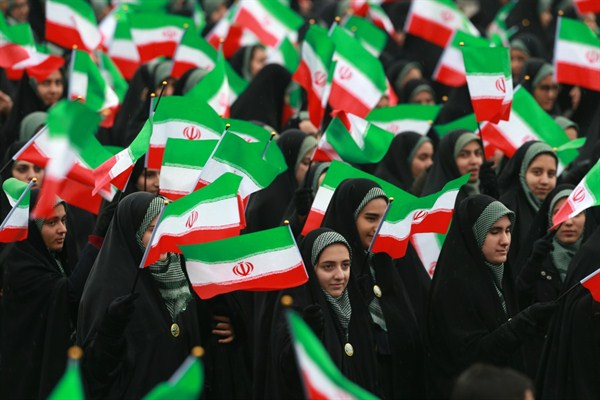As Iran celebrates the 40th anniversary of the Islamic Revolution, the United States’ confrontational policy toward Tehran under President Donald Trump presents a real challenge for the Iranian political elite, particularly the moderates among them. Trump’s policy of reimposing economic sanctions aims to impose “maximum pressure” on Iran in order to provoke a change of behavior in Iranian regional policy. Far from accomplishing its goals, the U.S. approach is more likely to strengthen conservative factions within Iran and give the moderates, including President Hassan Rouhani, an excuse for not working toward their electoral promises of granting greater freedoms and pursuing economic reform.
U.S. sanctions are not the only reasons for Rouhani’s current weakness. Iranian presidents have historically found their power diminished vis-à-vis the supreme leader in their second term, becoming so politically irrelevant in decision-making processes that they resemble political commentators more than effective political actors. This has been a constant theme in Iran since the presidency of Mohammad Khatami, from 1997 to 2005.
Rouhani is in an even worse position today than Khatami or Mahmoud Ahmadinejad, Rouhani’s predecessor, were during their second terms. He originally campaigned in 2013 on a moderate platform that would bring major economic improvements and Western foreign investment, and subsequently negotiated and signed the multilateral nuclear agreement, known as the JCPOA, to that end. The deal was heavily criticized by conservative factions in Iran as an unnecessary and dangerous step toward establishing closer relationships with the West. Conservatives warned Rouhani in particular about the risk of signing an agreement with the U.S., and helped block him from negotiating with the Obama administration on issues besides the nuclear program, such as Iran’s regional policy, its ballistic missile program and the re-establishment of diplomatic relations. Trump’s withdrawal from the nuclear deal and reimposition of sanctions proves them right and shifts the internal balance of power in their favor.

